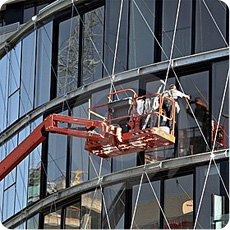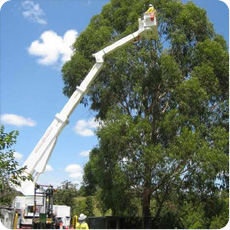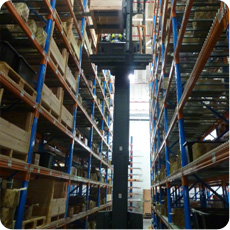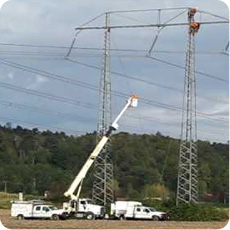Assessments
Emergency Descent Device Assessments
Emergency Descent Devices should be fitted to all equipment in industries where machine operators are required to work at height. Furthermore, operators need to be assessed and prove their ability to operate the EDD.
Industries where this is needed include Tree Lopping, Power Lines and Construction.
But this is far from exhaustive. Painters, Signmakers, Firemen, Window Cleaners and more could all be called upon to use an Emergency Descent Device if their equipment breaks down when elevated.
In fact, for many it will be a legislative requirement that operators be trained and assessed in the use of an EDD or CDD before they undertake any work at heights.
In the state of Western Australia for example, it is a WorkSafe ruling that anyone using truck mounted elevated work platforms be trained in the use of an EDD. It is part of the National Assessment Instrument.
Furthermore, industries may stipulate their own requirements in this regard. Western Power (in Australia) stipulate that all staff and contractors engaged in working at height be first of all trained and then assessed yearly in their use of EDD, CDD. These could be Arborculturists or Linesmen for Western Power themselves.
Legal Obligations For Employers
Also, employers generally have a duty of care and a legal obligation to ensure their workers are adequately trained in all aspects of the equipment they operate. This includes escaping from said equipment if it breaks down in an elevated position. To avoid fines and possible legal action it is important to find out what the legislated obligations are in your country/state.
With your duties clear, the next step is to find a suitably qualified Trainer and Assessor. A quick online search should turn up several in your area. Take time to interview several as services and costs can vary considerably.
A reputable assessor is one that will also help you to source equipment needed to comply with using Emergency Descent Devices or Control Descent Devices. That way they become a solution provider and not just someone who checks if the company meets it’s legal responsibilities. If annual training is needed then they become a valuable resource to your business.
They can even save a business money by obtaining safety equipment at wholesale rates and conducting Verification Of Competency assessments to see if training is even warranted in the first place.
Look to develop a long term relationship. A good assessor should also be able to supply you with statutory documents and proactively keep you appraised of laws as they change.

 Tree Lopping
Tree Lopping High Warehouses
High Warehouses Working on Power Lines
Working on Power Lines